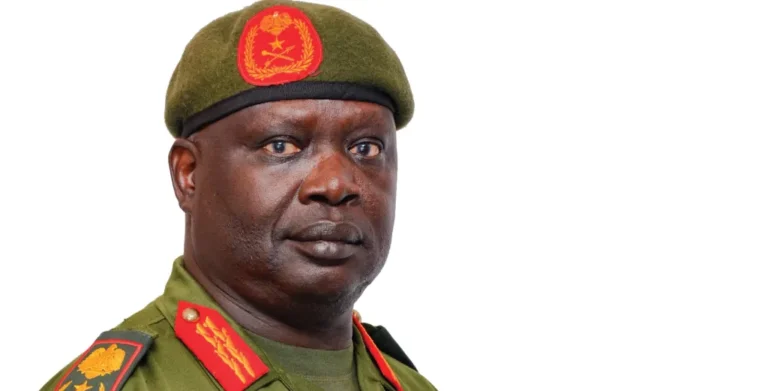A South Sudanese rebel group on Tuesday condemned the ongoing trial of suspended First Vice President Riek Machar and seven senior officials from his SPLM-IO party, calling the proceedings politically and tribally motivated.
The opposition South Sudan People’s Movement/Army (SSPM/A), led by Gen. Stephen Buay Rolnyang, said the trial violates the 2018 peace agreement and threatens to further destabilize the country’s fragile transitional government.
Bush Akech, the SSPM/A’s information chairperson and spokesperson, told Radio Tamazuj that the trial, currently underway in Juba, is “illegal” and intended to “humiliate a principal signatory” of the 2018 Revitalized Agreement on the Resolution of the Conflict in South Sudan (R-ARCSS).
Machar, who leads the Sudan People’s Liberation Movement-in-Opposition (SPLM-IO), is accused of involvement in deadly clashes in the town of Nasir earlier this year. He and seven co-defendants were arrested following the incident.
“The ongoing trial is biased,” Akech said. “There is a clause in the peace agreement that empowers it to be the supreme law. In cases of such nature, it refers to the establishment of a hybrid court.”
The hybrid court, envisioned in the R-ARCSS, is meant to handle cases involving war crimes and other serious violations. Akech argued that the case should have been investigated by the Ceasefire and Transitional Security Arrangements Monitoring Mechanism (CTSAMVM), which would then report to regional peace guarantors, including the Intergovernmental Authority on Development (IGAD).
He accused regional actors, particularly Uganda, of overstepping their role and supporting the administration of President Salva Kiir.
“The peace guarantors are not observing their roles neutrally. Uganda, in particular, is taking sides,” Akech said.
He further alleged that the trial is part of a long-running political vendetta by Kiir and other political elites dating back to internal SPLA divisions during the liberation struggle in the early 1990s.
Akech also raised constitutional concerns, asserting that Machar, as First Vice President, enjoys immunity from prosecution under the transitional constitution, which he said is based on the 2018 peace deal.
“You cannot put one partner to the peace agreement on trial and still claim to be implementing the agreement,” he said. “Both Salva Kiir and Riek Machar are immune under the agreement from such legal actions.”
Regarding the Nasir clashes, Akech said they were triggered by tensions between government forces and local Nuer militias, known as the White Army. He claimed the militias had repeatedly raised concerns about alleged abuses by government troops and requested their withdrawal in favor of the unified forces stipulated under the peace accord.
“When those calls were ignored and the government instead moved to disarm them using allied militias, the White Army launched a preemptive attack, resulting in casualties on both sides,” he said.
The SSPM/A official has called on regional and international actors to support the formation of a technocratic transitional government and urged both Kiir and Machar to step aside to pave the way for peaceful elections and constitutional reforms.
“The only way to restore stability is through a neutral, technocratic government,” Akech said. “Otherwise, the country risks fragmenting into tribal enclaves.”
He reiterated the group’s call for accountability to be pursued through the agreed-upon mechanisms under the peace deal.
“If there are cases like the Nasir incident, they should be handled by CTSAMVM and not through politically driven trials,” he said.




